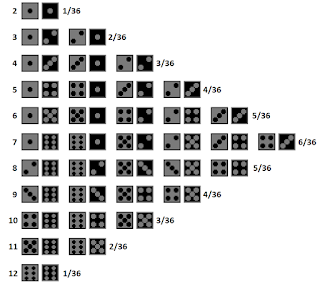If n is an integer from 1 to 96 (inclusive), what is the probability for N being divisible by 8 when N=n*(n+1)*(n+2)
A. 25%
B 50%
C 62.5%
D. 72.5%
E. 75%
Let f(n) = n*(n+1)*(n+2)
The product of the three consecutive numbers will be divisible by 8 if the first of the 3 consecutive numbers is even as it prime factors out to at least three 2’s.
f(2); the function becomes 2*3*4 will be divisible by 8 because 2 is even.
f(52), the function becomes 52*53*54 will be divisible by 8 because 52 is even
f(61), the function becomes 61*62*63 will NOT be divisible by 8 because 61 is odd
However, there is one more case where the function will be divisible by 8 even when the first number of the three consecutive number is odd;
f(7): the function becomes 7*8*9; the middle term 8 is divisible by 8 and thus the entire function becomes divisible by 8.
f(63): the function becomes 63*64*65; the middle term 64 is divisible by 8 and thus the entire function becomes divisible by 8.
Probability = desired/total
How many functions are there;
f(1) = 1*2*3
f(2) = 2*3*4
f(3) = 3*4*5
f(4) = 4*5*6
…
f(95) = 95*96*97
f(96) = 96*97*98
Total = 96
To find the favorable cases; we need to find the count of all even numbers from 1 to 96 and the count of all numbers that are divisible by 8.
Count of even numbers = (96–2)/2+1=47+1=48
Total numbers divisible by 8 = (96–8)/8+1 = 12
Probability=48+1296=6096=0.625=62.5Probability=48+1296=6096=0.625=62.5
C
